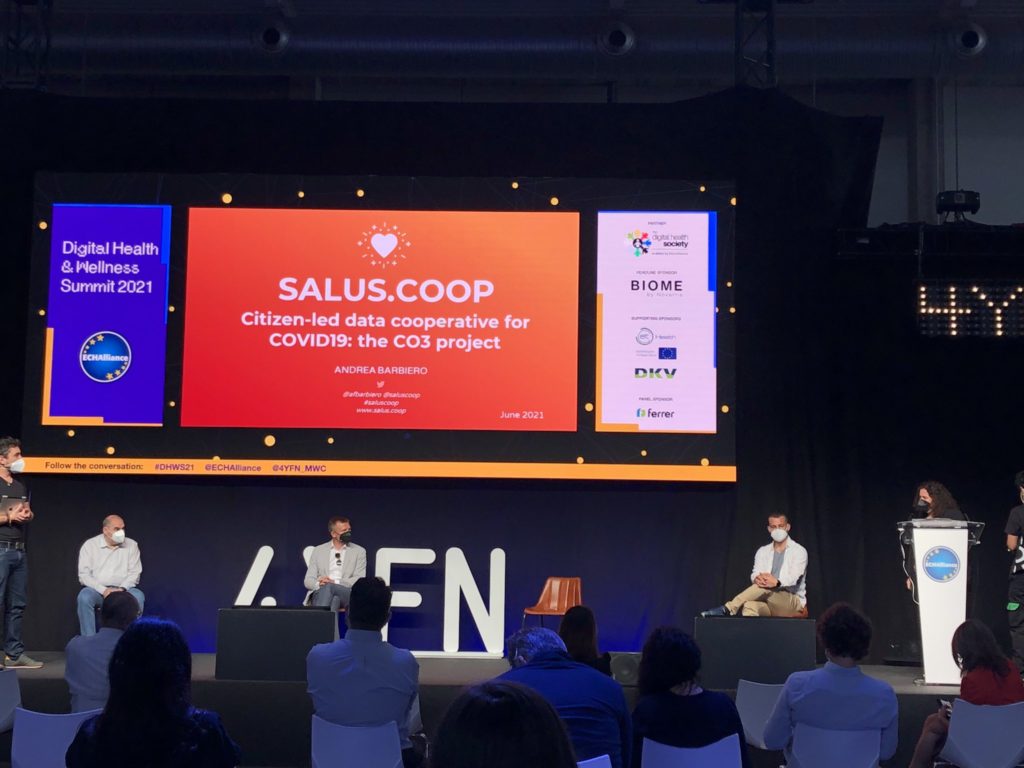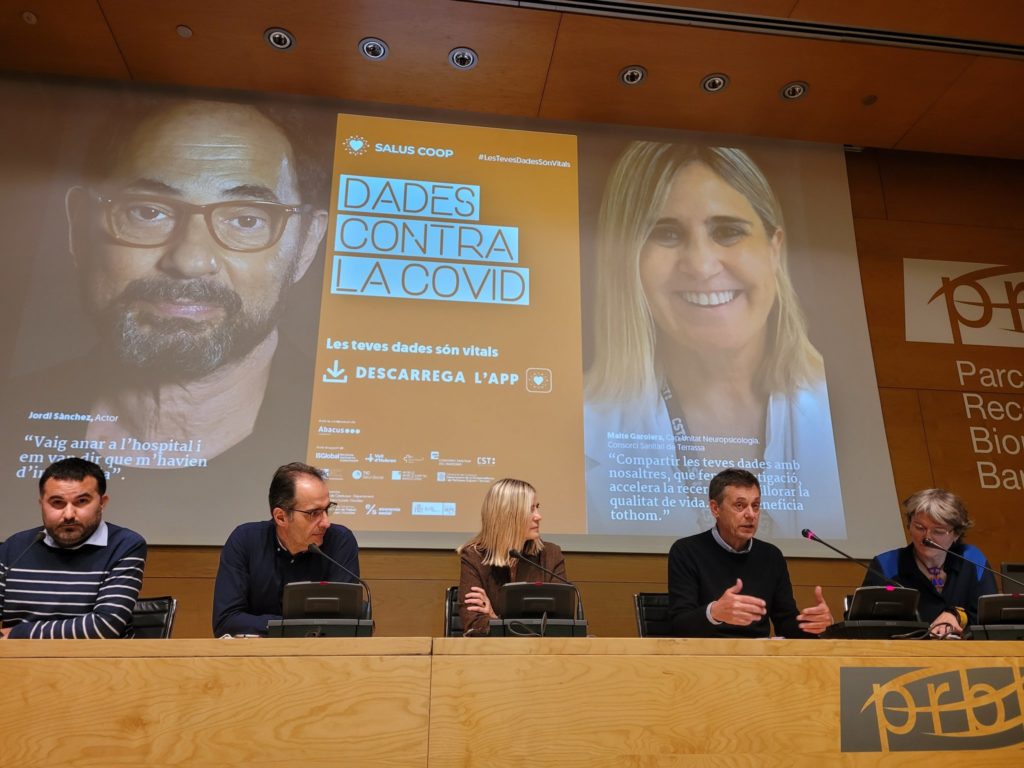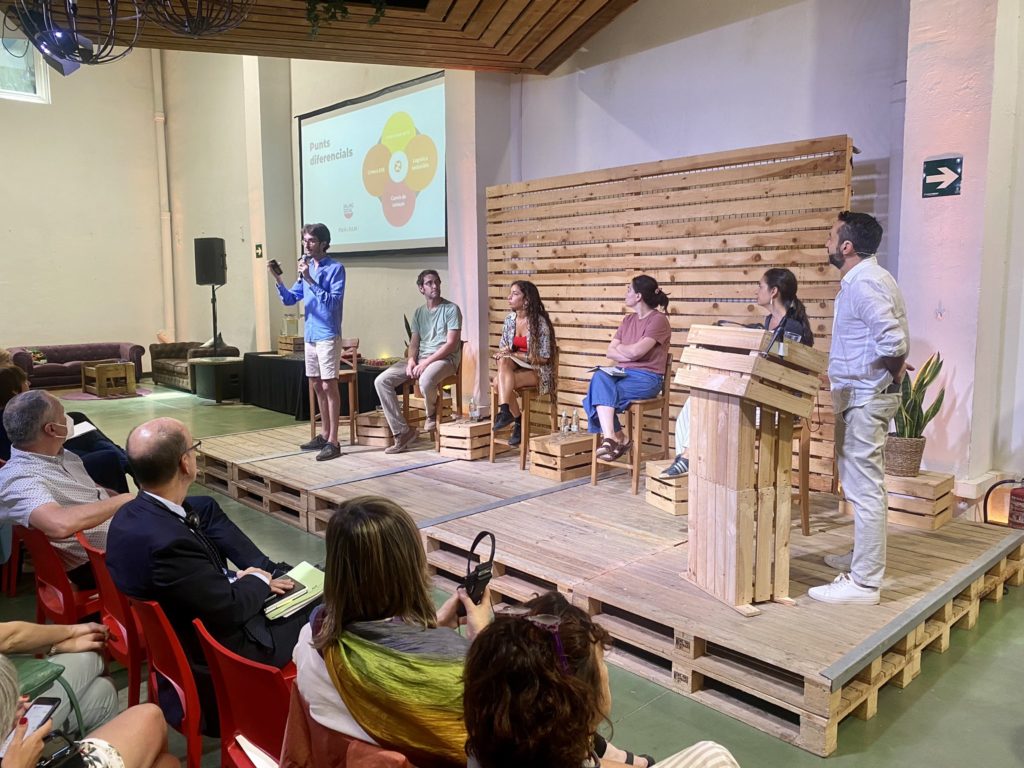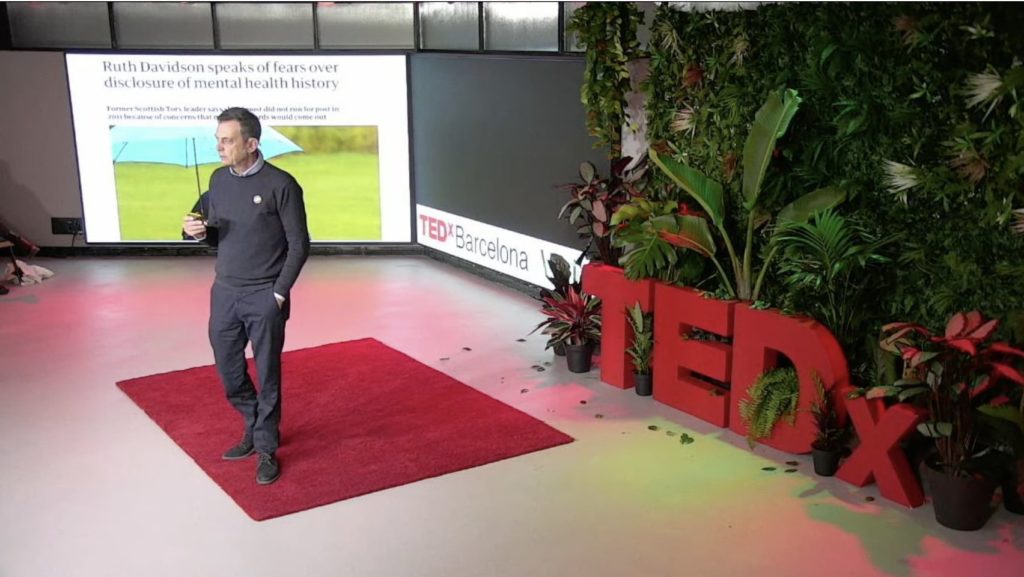Catalonia (Barcelona)
Salus.Coop imagines a world where citizens control their health data.
The future of our health depends largely on the potential to combine, integrate and share our data. However, the decision to share our data involves many risks, such as privacy, security and possible misuse of the data. For example, consider how facial recognition or health status data can affect freedom of movement or employment opportunities.

The future of our health depends largely on the potential to combine, integrate and share our data.
Law and government experts can formalise, standardise and enforce data licenses, but in order for it to be used in the best way goals and conditions have to be set by citizens to foster their personal and collective wellbeing.
This is where Salus.Coop comes in.
Salus.coop is an initiative from 20 diverse professionals in Barcelona who envision a future where citizens emerge as the driving force of the data revolution, by being individually able to manage their own data and collectively set the goals.
They ask questions such as: How can citizens take control over their health data? How can medical research be accelerated by removing barriers to data access? Can citizens take a more active role in medical research?

Salus.coop is an initiative from 20 diverse professionals in Barcelona who envision a future where citizens emerge as the driving force of the data revolution.
Salus.Coop addresses these by enabling citizens to create a personal repository of their data (clinical, socio-economical, lifestyle, and more) and define the terms and conditions upon which they are willing to share it for health research projects they are interested in.
Most health research right now is focused on illness and drug development, but citizens are more interested in health and wellbeing conditions.
Health and wellbeing depend on genetic factors (10%), on clinical factors (20%), on socio-economic conditions (30%) and on lifestyle habits (40%), such as diet, exercise, relationships, or access to green spaces.
Citizen science projects allow citizens to build the knowledge and solutions on the issues that affect them, such as the effects of noise or air quality. These projects are empowering and community-building processes in which data is collected by citizens, shared in their own terms with scientists, and analysed jointly to reflect on the situation and devise new actions.

Citizen science projects allow citizens to build the knowledge and solutions on the issues that affect them.
Co-founder Javi Creus explains the process of Salus.Coop:
“When we started with the idea of a citizen data cooperative for health research we asked the health department in Catalonia to make our clinical history available in standardised and machine-readable format to each citizen.”
Five years later that same department is working to make it happen. In addition, Salus.coop has been selected as a finalist for the Santander X Global Challenge I Blockchain And Beyond programme. They are also collaborating on the Citizen Cooperative of Health Data for Research project with d-LAB, to research how people want to share their data and what data licences need to be in place for this data to be easily and safely shared.

The project has been gathering much support.
“Enabling individual and collective data rights for citizens is what makes us proud,” explains Javi. “Being part of a wider global movement towards citizen governance of data for common good such as data trusts, platform cooperatives or mydata makes us feel proud as well.”
The project has garnered much attention, with support from the health and digital policy departments from the Catalan government, the Mobile World Capital foundation and top health research institutions (such as ISglobal or la Vall d’Hebron). There is also support from the significant cooperative movement in Catalonia.
This support and involvement from a range of areas is vital. As Javi explains, “This has been a story of trust reengineering rather than technology development.” And the enthusiasm from citizens shows that Salus.Coop is heading in the right direction.
AtlasAction: Download the app, choose a research project of your choice and start contributing anonymously with your data!
Project leader
Joan Guanyabens and Gemma Domènech
Support the Atlas
We want the Atlas of the Future media platform and our event to be available to everybody, everywhere for free – always. Fancy helping us spread stories of hope and optimism to create a better tomorrow? For those able, we'd be grateful for any donation.
- Please support the Atlas here
- Thank you!

